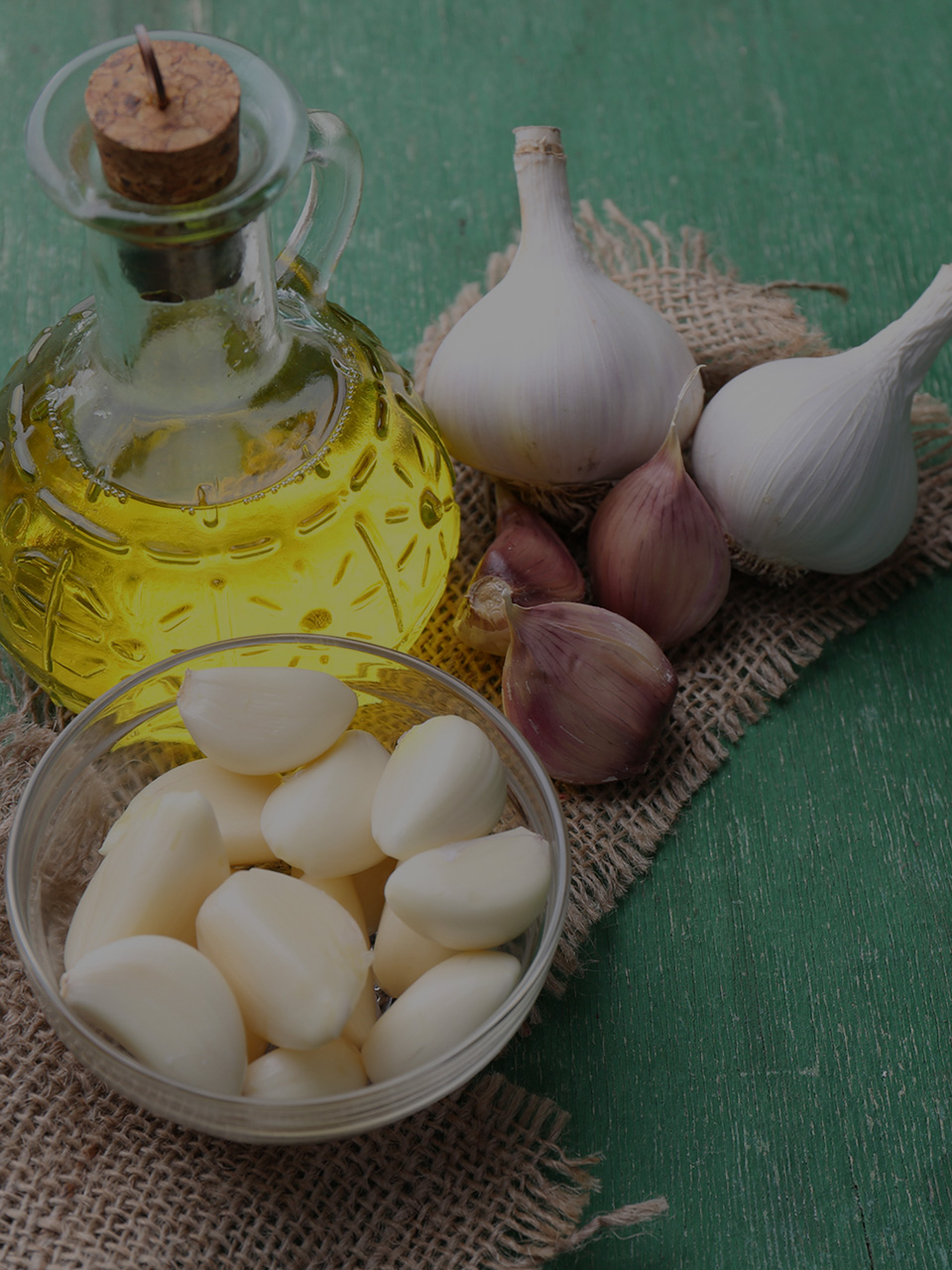
Tap to Read ➤
Garlic Oil Ear Drops
Palmira S


There can be various reasons that cause the ears to ache, and garlic oil ear drops can be a solution to most of them. Let's have a look on how it works and also learn how to make it at home, through this story.

The uses of garlic oil are varied, and one of it being in curing ear infections. The antibacterial properties present in garlic makes it a good remedy for infections. Also, the presence of strong aromatic compounds and its anti-inflammatory and antiseptic properties prove to be helpful.

Garlic Oil and Ear Infection
Since ancient times, garlic oil has been used for curing ear infections. It is used in modern times too for the same purpose, as scientific studies have proved that it is one of the best remedies for ear infections. The substance present in garlic oil called allicin, has antimicrobial properties which help in the process of healing.

These compounds are absorbed via the eardrum in the inner part of the ear and the nearby tissues which help in healing. Garlic oil ear drops are known to heal many ear problems like ear ache, clogged ear, presence of earwax, etc.

Preparation Procedure
The materials you will require for making ear drops are 1 clove of garlic (peeled and crushed), 1/2 cup olive oil, microwave, glass mason jar, and microwave safe bowl.

Method #1
Garlic oil can be made in three methods. Let's take a look at the first method. The first method can be done with the help of a microwave. Add garlic and oil in a bowl and place it in the microwave. Allow it to cook for 30 seconds to 1 minute or till the time it becomes sufficiently hot.
Garlic oil can be made in three methods. Let's take a look at the first method. The first method can be done with the help of a microwave. Add garlic and oil in a bowl and place it in the microwave. Allow it to cook for 30 seconds to 1 minute or till the time it becomes sufficiently hot.

With the help of a Q-tip or a dropper, pour a few drops of the oil in the ears. You cannot preserve it for many days, so make sure that you use and finish it off within 1 or 2 days.

Method #2
In a jar having a tight lid, pour some oil and also put garlic cloves in it. Place it in the jar for a week so that the garlic's antibacterial and antiviral properties are absorbed well in the oil. Boil the oil and then use it. Do not boil mush as there are chances of garlic antibacterial being destroyed due to overheating.
In a jar having a tight lid, pour some oil and also put garlic cloves in it. Place it in the jar for a week so that the garlic's antibacterial and antiviral properties are absorbed well in the oil. Boil the oil and then use it. Do not boil mush as there are chances of garlic antibacterial being destroyed due to overheating.

Now, you can pour this oil in the ear. After you pour oil in the ear, allow it to be in the ear at least for a minute. In order to avoid the oil spilling, you can place a cotton ball in the ear. Before you pour the oil in the ears, make sure that you have strained it well. These ear drops can be used for 1 or 2 weeks.

Method #3
There is one more way of preparing garlic oil ear drops. Put some oil in a pot, and allow it to simmer well. In this boiling oil, add a few cloves of garlic. Allow it to simmer till the garlic mixes well. After that you can turn off the flame and let the temperature reduce. After it cools down, you can use it as ear drops.
There is one more way of preparing garlic oil ear drops. Put some oil in a pot, and allow it to simmer well. In this boiling oil, add a few cloves of garlic. Allow it to simmer till the garlic mixes well. After that you can turn off the flame and let the temperature reduce. After it cools down, you can use it as ear drops.

Health Benefits of Garlic
- A garlic ointment is known to heal wounds, cuts, skin irritation, athlete's foot, fungus, and also other skin infections.
- Garlic oil is known to relieve toothache.

- If you have sore throat, then garlic tea will prove to be of help. For making this tea, steep a few cloves of garlic in water and allow the clove to be in the water for at least 12 hours. You can use the water after 12 hours for making the tea.

- Garlic can also be a good remedy for flu, cough, and also other respiratory ailments. In order to cure the above-mentioned disorders, you will have to make cough syrup. For making cough syrup, in one quart of boiling water, put some fresh garlic. Add sugar in this syrup. After 12 hours, it will be ready-to-use.

- Garlic is also used as a treatment for low blood pressure. Eating it after waking up will help in keeping the blood pressure normal.

Simply placing a clove of garlic in the ear will also help in healing the infections. Garlic oil ear drops are also known to assist in softening the earwax present inside the ear. At times, infection can also cause hearing loss of a person. Hence, try to protect yourself from the sources of infection and in case you have it, keep garlic oil ear drops handy.

Disclaimer: This story is for informative purposes only, and should not be used as a replacement for expert medical advice.